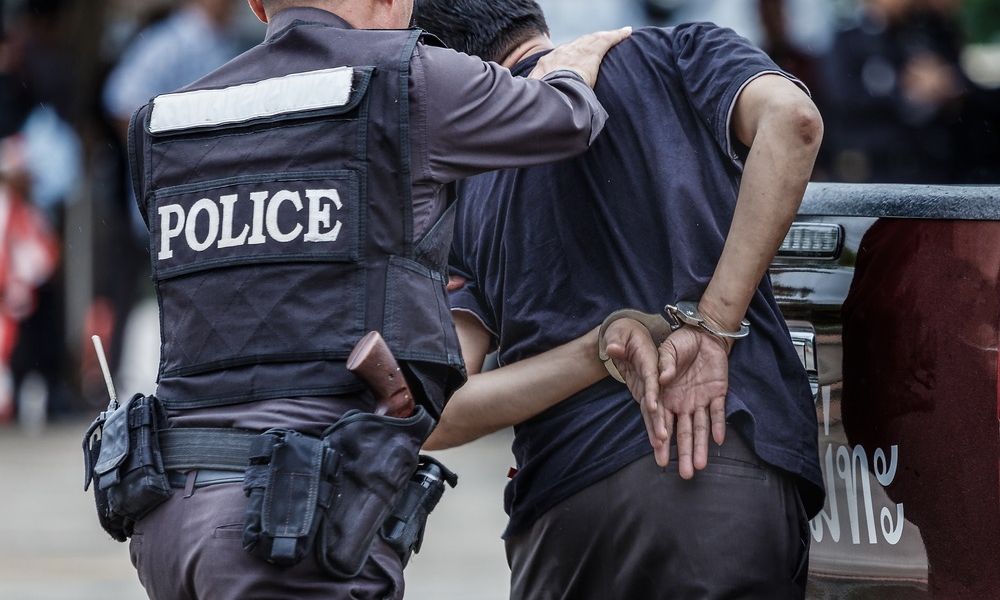Two Oregon College Students Charged with Defrauding Apple $900K in Counterfeit Warranty Scam
 Credit: Boyphare / Shutterstock
Credit: Boyphare / Shutterstock
Toggle Dark Mode
A pair of Chinese engineering students in Oregon have been accused of defrauding Apple out of almost $900,000 as part of a counterfeit iPhone scheme that involved exchanging fake iPhones for legitimate ones.
The two men, Yangyang Zhou and Quan Jiang, had been in the U.S. on student visas, according to The Oregonian, with Zhou having completed his studies at Oregon State University a few months ago, and Jiang studying engineering at Linn Benton Community College last spring. The duo allegedly imported more than a thousand counterfeit iPhones from China, which they then sent “back” to Apple to exchange for new, legitimate iPhones under Apple’s warranty program.
According to federal prosecutors, the new, genuine iPhones were shipped overseas to be sold by an accomplice, with Zhou and Jiang getting a cut of the profits. In total, the alleged scam is estimated to have cost Apple $895,800.
U.S. authorities became suspicious in April 2017 when Customers and Border Protection (CBP) seized several suspicious shipments from Hong Kong that had Apple markings and design features “that appeared to be counterfeit.” By the end of 2017, Homeland Security had identified Jiang as one of the alleged importers. According to an affidavit from Homeland Security included in the court filing, Jiang told investigators that he would receive packages of between 20 and 30 defective iPhones from an associate in China on a regular basis, which he would then submit individually to Apple for repair under the company’s warranty program, and then shipping the replacement iPhone back to an associate in China. For his efforts, Jiang was paid via his mother, who lives in China, and would transfer the money to Jiang via a U.S.-accessible bank account. Jiang told authorities that he brought or sent in about 2,000 iPhones to Apple for warranty repairs during 2017.
An Apple representative interviews by investigators noted that Apple’s technicians are supposed to examine iPhones received for repair to ensure that they are genuine Apple products, and reject those that are deemed to be counterfeit. In this case, however, almost half of the iPhones submitted to Apple by Jiang passed inspection, at least partially because they wouldn’t power on and therefore couldn’t be as easily verified as fakes. Records provided by Apple indicated that Jiang was associated in some way with 3,069 iPhone warranty claims, all of which claimed the iPhone wouldn’t power on.
While Apple replaced 1,493 of these iPhones, the company did reject the rest, however the case raises interesting questions about Apple’s internal auditing processes, since it seems that receiving and rejecting 1,576 counterfeit iPhones within the same geographic area should have raised more of a red flag somewhere along the way. Jiang also indicated that at least some of the iPhones were submitted in person, presumably at one of Oregon’s three Apple Retail Stores. However, Jiang’s name also wasn’t directly associated with all of the warranty claims — some were traced back to him later by his IP address, and investigators said he also paid friends and relatives to use other addresses in Oregon and Washington states. In addition to warranty rejection letters, Apple’s legal counsel sent two cease-and-desist notices in June and July 2017 to one of Jiang’s addresses.
Jiang appears to have been the mastermind behind the plan, and was charged last March with trafficking in counterfeit goods and wire fraud, and remains in open custody on GPS monitoring. His alleged accomplice, Yangyang Zhou, is facing a lesser charge of submitting false or misleading information on an export declaration, and remains out of custody, although he has been ordered to have no contact with anybody from Apple while the case is pending. Customs officials found at least three shipments from China that were address to Zhou and contained 95 counterfeit iPhones, and determined that over 200 separate warranty claims were also made in Zhou’s name or variations thereof.
In their defence, both men have claimed that they didn’t know the iPhones that were shipped to them were counterfeit, and Jiang maintains that he never received communications from Apple that any of the iPhones he submitted were counterfeit, or that what he was doing was unlawful. Jiang’s defence lawyer declined to comment, while Zhou’s lawyer insists that his client “was not aware of any counterfeiting” and that he is confident that his client “will be vindicated.”






